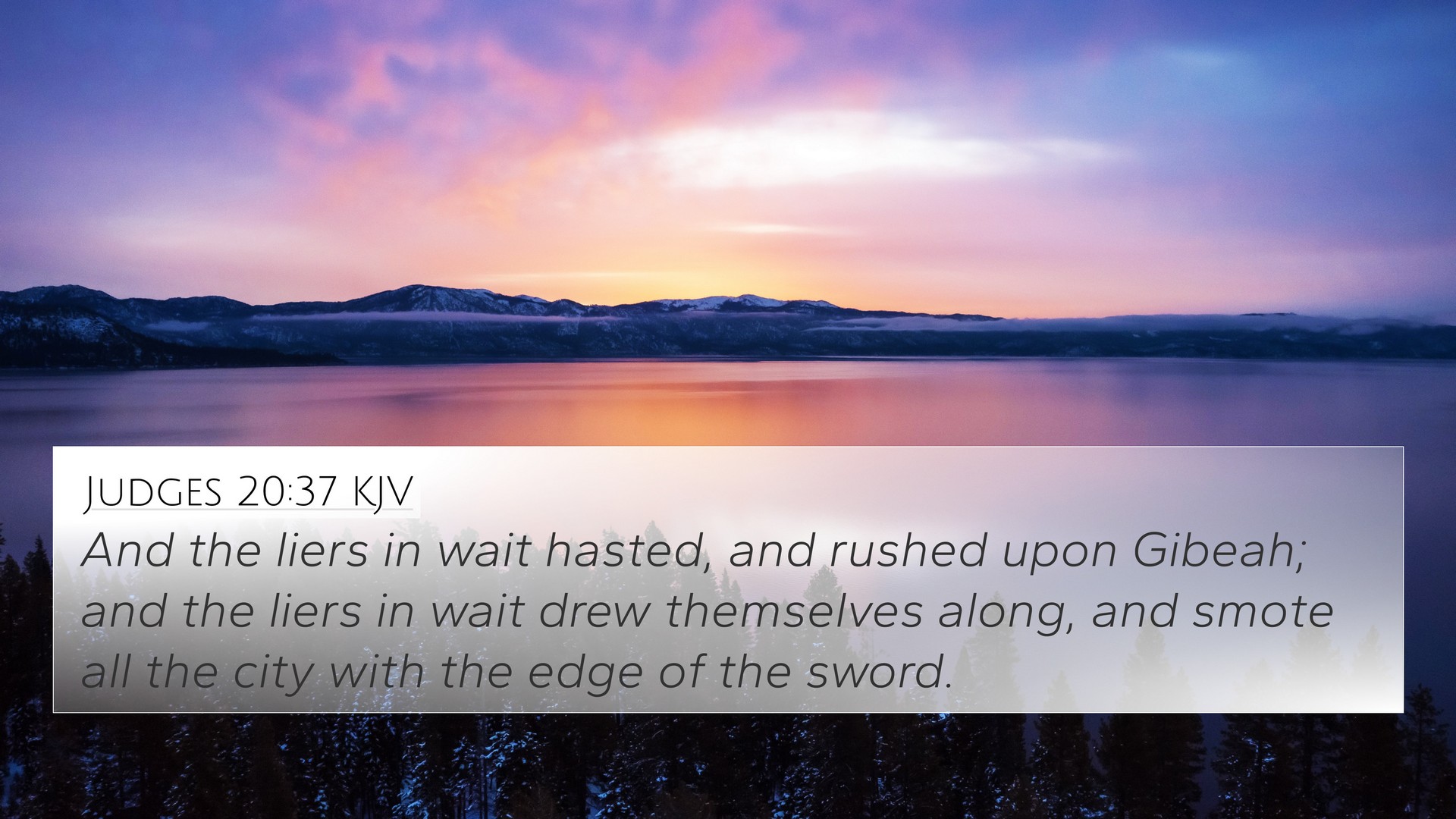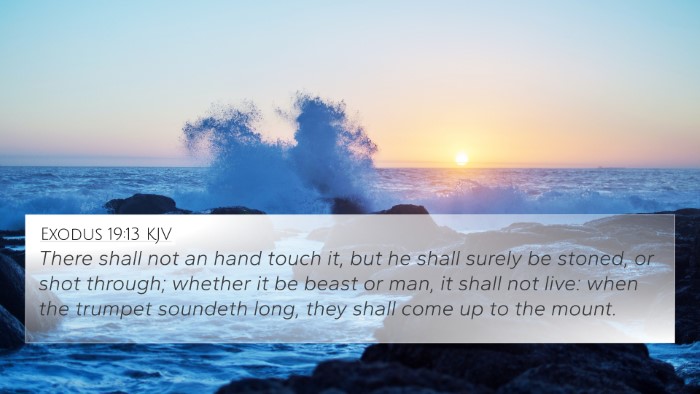Understanding Judges 20:37
Judges 20:37 states: "And the liers in wait hasted, and rushed upon Gibeah; and the liers in wait drew themselves along and smote all the city with the edge of the sword." This verse serves as a crucial part of the narrative concerning the conflict between the tribe of Benjamin and the other tribes of Israel. The verse highlights the strategic military tactics employed by the Israelites and invites us to delve deeper into the implications of war, justice, and divine sovereignty in the context of ancient Israel.
Commentary Insights
Matthew Henry's Commentary
Matthew Henry emphasizes the importance of cautious and intelligent planning in the face of conflict (Judges 20:31-37). He observes that the Israelites set a trap for the Benjamites, which required both patience and careful execution. The allegorical significance of this tactic speaks to the necessity of moral and spiritual prudence in our own lives.
Albert Barnes' Notes on the Bible
Albert Barnes points out that in this verse, the liers in wait represent a deliberate ambush that ultimately leads to the destruction of Gibeah. Barnes highlights the consequences of sin and the moral decay that led to such violence. The destruction serves as a divine judgment upon the inhabitants of Gibeah for their earlier evil acts, which is a critical theme throughout the book of Judges.
Adam Clarke's Commentary
Adam Clarke focuses on the divine providence at work in this battle. He mentions that the ambushers' actions were preordained, aligning with the larger narrative of Israel's cyclical disobedience and the resultant consequences. Clarke suggests that historical contexts like this challenge the reader to evaluate contemporary morality and justice, encouraging reflection on divine fairness and human actions.
Bible Cross-References
Judges 20:37 is interwoven with several other passages, shedding light on themes of justice, divine intervention, and moral accountability. Below are related verses you can explore for deeper understanding:
- Judges 19:22-30: This passage recounts the events leading to the conflict, establishing the moral background of the Benjamites.
- 1 Samuel 15:33: Here we see a reflection on divine justice and the consequences of disobedience.
- Deuteronomy 13:13-19: This serves as a directive on how to deal with cities that turn to wickedness, aligning thematically with Judges 20:37.
- 2 Samuel 21:1-14: This narrative speaks to the consequences faced by the tribe of Benjamin due to their past sins.
- Psalms 36:1: A reflection on the human heart's inclination towards evil, echoing themes present in Judges.
- Isaiah 59:12-15: This passage discusses the societal consequences of sin, paralleling the events of Judges.
- Galatians 6:7: A New Testament reminder that reaping what one sows is a timeless principle relevant to the actions described in Judges 20:37.
Thematic Connections
The events of Judges 20:37 echo across the scriptures, allowing for rich thematic connections. Here are a few:
- Justice and Retribution: The cyclical theme of sin leading to consequences is evident not only in Judges but throughout the Bible.
- Divine Sovereignty: The idea that God orchestrates events for His purposes can be traced throughout the Old and New Testaments.
- The Nature of Warfare: Historical depictions of warfare help to frame contemporary discussions around ethics in conflict.
Conclusion
Judges 20:37 serves as a powerful indictment of moral failure and the ensuing consequences. By considering multiple commentaries, we derive a multi-faceted understanding of this verse and its implications. In studying this verse, readers are encouraged to explore the broader narrative context while identifying thematic bible verse connections that enhance their study of scripture.
Tools for Bible Cross-Referencing
To facilitate your study of cross-references connecting Judges 20:37 with the rest of Scripture, consider using tools like a Bible concordance or a Bible cross-reference guide. Understanding how to identify connections between Bible verses enriches your reading and interpretation.





